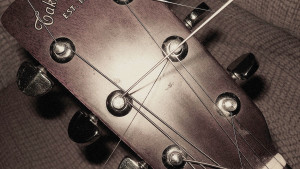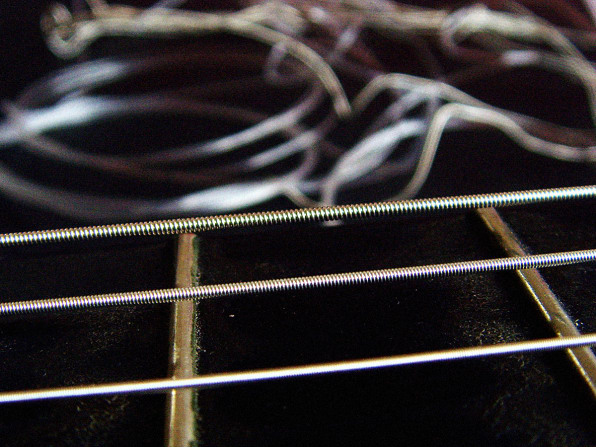Source: fastcoexist.com
Published: March 3, 2016

Up to 1.5 million pounds of strings end up buried in a landfill every year. Photos: Flickr user Alan Levine
Instrument strings seem like a small part of the waste stream. But even small things add up quickly.
D’Addario, the musical instrument string-making company, will now recycle your guitar, mandolin, bass, or even your strings. And they don’t have to be made by D’Addario, either. The new program, called Playback, will accept metal instrument strings from any manufacturer.
Thanks to their mixed-metal construction, instrument strings aren’t recyclable in most cities, and D’Addario estimates that up to 1.5 million pounds of strings could be ending up buried in a landfill every year. To fix this, the company has teamed up with TerraCycle, a company that handles hard-to-recycle objects, like coffee capsules, pens, and plastic gloves.

Flickr user Joe Flintham
Instrument-accessory manufacturer D’Addario isn’t new at the green game. For example, instrument strings from other makers usually come in individual envelopes, packed inside another envelope. These are marked so that the musician knows which string is which. D’Addario avoids this wasteful practice by color-coding the metal balls on the ends of the strings, and coiling them all into one sealed plastic baggie, which also keeps the strings “fresh” and rust-free.
To recycle strings, you’d mail them to the company and receive points based on their weight. The points can be redeemed for new strings, guitar picks, and other accessories. Or you can donate the points to the D’Addario Foundation, which funds music programs in underserved communities.
Hopefully this program will be adopted by music stores, too. I’d drop my strings off in a box at the local guitar store if there was one, and perhaps the stores could donate their rewards to local schools. D’Addario strings are to guitarists as Coca-Cola is to lovers of insulin-spiking soft drinks, so pretty much every music store carries them.
We’re getting pretty good at recycling, but as we just learned, there are still plenty of things that end up in landfills because there is no infrastructure for recycling or reusing them. It’ll be interesting to check back in with D’Addario a year from now to see how many of those estimated 1.5 million pounds of strings are being saved from the municipal dump.
The Playback program is currently only available in the U.S.
